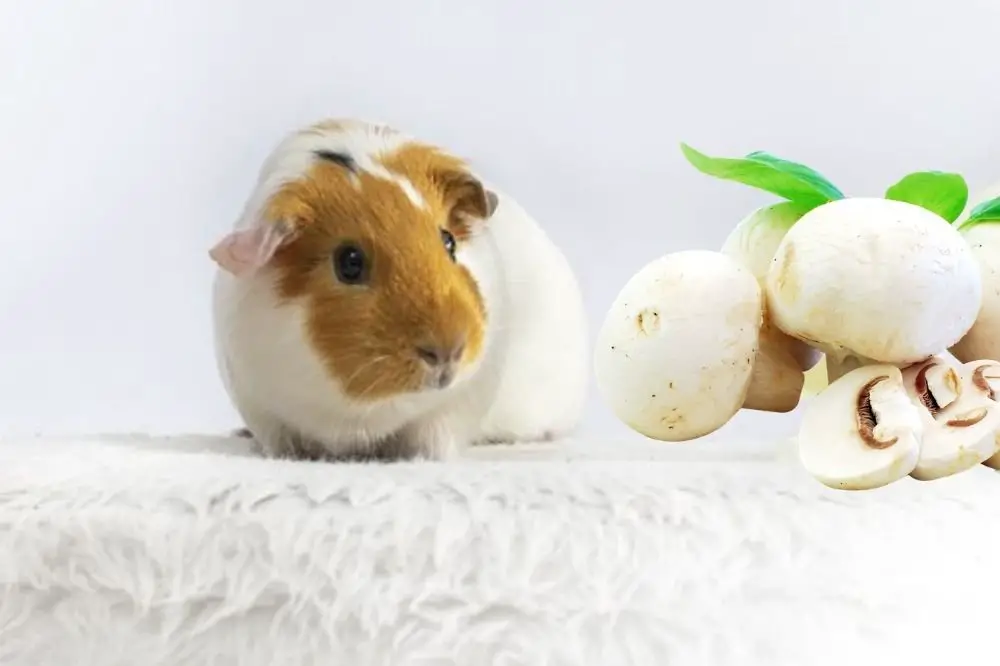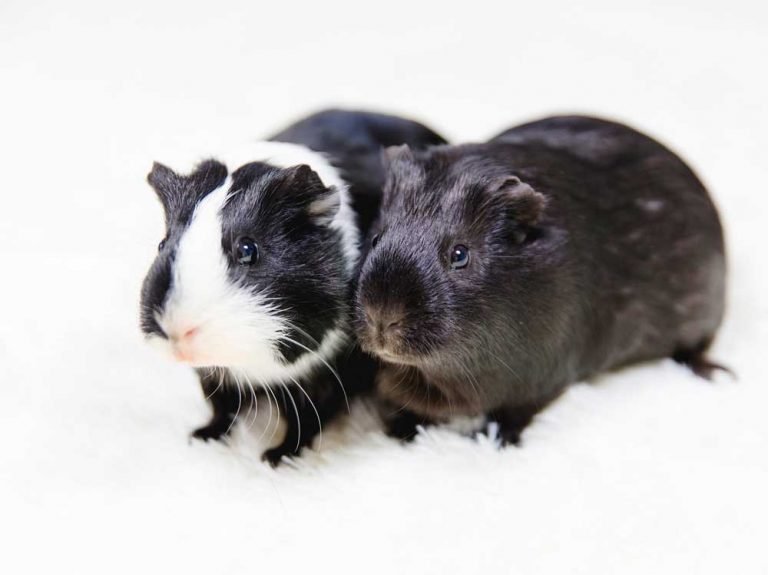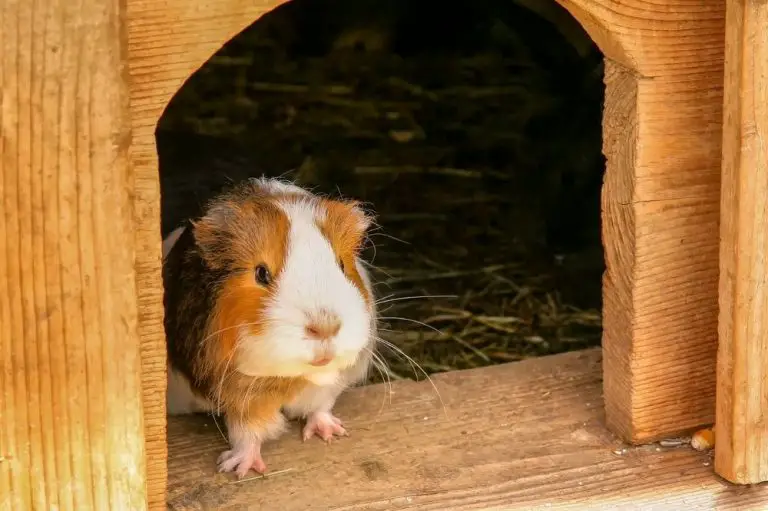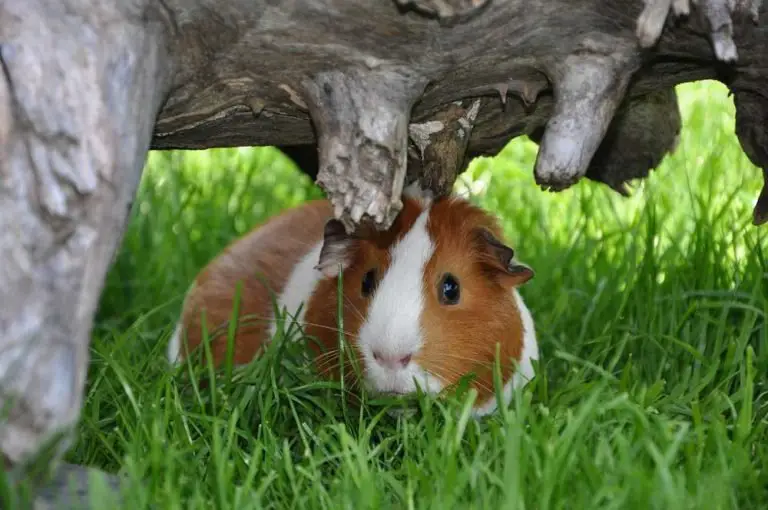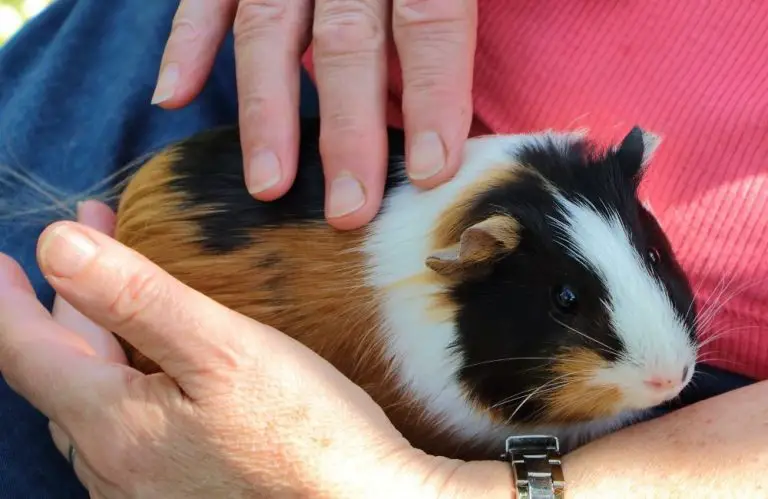Can Guinea Pigs Eat Mushrooms? [Feeding Guide!]
Guinea pigs are herbivorous pets that feed on a plant-based diet that includes hay, veggies, fruits, and grass. They will continue feeding on the foods you offer them without showing signs of being full.
This could easily lead to overfeeding. To avoid that, ensure that you feed them based on a schedule. A good schedule would be mornings and evenings, the two times of the day when they are most active.
Some foods have been labeled as toxic to guinea pigs and they should never be fed to them. Maybe you are wondering if mushrooms are part of these foods. Are they toxic too?
That’s exactly what we are going to be looking into. Read on.
Can guinea pigs eat mushrooms?
Guinea pigs can eat mushrooms but only some select types like white mushrooms, button mushrooms, and portabello mushrooms which are safe for them. You should avoid wild mushrooms that are toxic to them and cooked mushrooms which are not good for their digestive systems. Only feed them raw mushrooms.
Do guinea pigs like mushrooms?
Guinea pigs have different taste buds and they will prefer different foods. Some will like mushrooms while others will not.
To be able to ascertain if your guinea pig likes mushrooms or not, you should try feeding them a small slice.
Benefits of feeding guinea pigs mushrooms
Mushrooms have very little nutritional properties in them. Guinea pigs can only take a small amount so the mushrooms will end up having little beneficial features for them if any. They include:
Low in calcium
Mushrooms have low amounts of calcium. Calcium is needed by pregnant and young guinea pigs for the development of strong bones.
This makes the mineral quite inefficient for adult guinea pigs. When in high quantities, calcium becomes harmful to them.
It brings about the formation of kidney stones and bladder stones that will affect the urination of guinea pigs. The stones lead to painful urinating that may sometimes be accompanied by blood in the urine.
When in low quantities calcium is less destructive making mushrooms good to eat.
High potassium levels
Potassium is an important mineral that works in enhancing the growth of guinea pigs and improving the health of body parts like the heart. Potassium also aids in controlling blood pressure.
Fiber
The fiber content in mushrooms is so small that it’s almost negligible. But fiber is still fiber and it’s required by guinea pigs.
Guinea pigs have a delicate digestive system that gets easily upset by the slightest thing. They require fiber to aid in their digestion processes.
Fiber helps in smoothening out the process and in preventing stomach issues like constipation.
Control weight gain
Mushrooms are filler foods. They contain little calories and large quantities of them can be eaten in one go without any worries of caloric intake.
When fed to guinea pigs they will be able to give them the feeling that they are full making them have less need of eating high-calorie foods and gaining weight in the process. Mushrooms will help in adjusting their weight because if they had gained some they will be able to shed it hence maintaining a good weight.
Low in fat and sugars
Fat and sugars lead to weight gain and obesity in guinea pigs. These in turn bring about other health problems like diabetes.
Mushrooms are low in these making them safe for guinea pigs to eat.
Effects of feeding guinea pigs mushrooms
Mushrooms have some negative side effects to guinea pigs too when ingested. These are:
Poisoning
The biggest would be the possibility of poisoning for your pet. Wild mushrooms present a health hazard to guinea pigs that is fatal.
There are many types of wild mushrooms and though some are safe for humans to eat, the same types can be unsafe for guinea pigs. It can be hard to figure out which wild mushrooms are safe and which ones are not.
Veterinarians generally recommend not feeding any wild mushrooms to guinea pigs because the risk of them being toxic is not worth it taking into consideration the little nutritional value of mushrooms.
Low in vitamins
Guinea pigs require vitamins from plants as part of their dietary requirements. Vitamin C is one such vital vitamin that they need because they cannot produce it for themselves.
Lack of vitamin C causes scurvy and brings about a weak immune system. Eating lots of mushrooms will lead to nutrient deficiency if they are not supplemented with other nutrient-dense foods.
High phosphorus levels
Phosphorus content levels in relation to calcium levels play a role in the health of guinea pigs. If the amount of phosphorus surpasses that of calcium, it leads to calcium stone deposits.
This is why you should always ensure that all meals have a higher calcium content to phosphorus content to avoid diseases.
Which parts of mushrooms are safe?
All parts of the mushroom plant are safe for consumption including the stalk. You should avoid giving cooked mushrooms and feed your pet only the raw ones.
Always wash the plant carefully to remove dirt and bacteria as it’s found close to the ground. If feeding mushrooms for the first time, begin by cutting a small piece and offering it to your guinea pig.
Watch out for any signs of stomach upsets, bloating, and diarrhea within the next 12 hours. If none occurs and your guinea pig is okay, you can continue feeding them the mushrooms. But if they experience upsets, do not give it to them again.
Conclusion
Mushrooms are safe for guinea pigs to eat but always avoid wild mushrooms which could be toxic. They are filler foods and they carry very little nutritional properties.
Mushrooms can be fed often. If you are not certain whether a type of mushroom is good for your guinea pig or not, it’s best not to feed it. You can either consult a vet about it or leave it altogether. After all, they say better safe than sorry.
- Can Guinea Pigs Eat Lawn Grass? Find out now!
- Can Guinea Pigs Eat Wet Grass? Find out now!
- Can Guinea Pigs Eat Weeds? Explained
- Can Guinea Pigs Eat Watermelon? (Benefits & Risks)
- Can Guinea Pigs Eat Strawberries? [Feeding Guide!]

